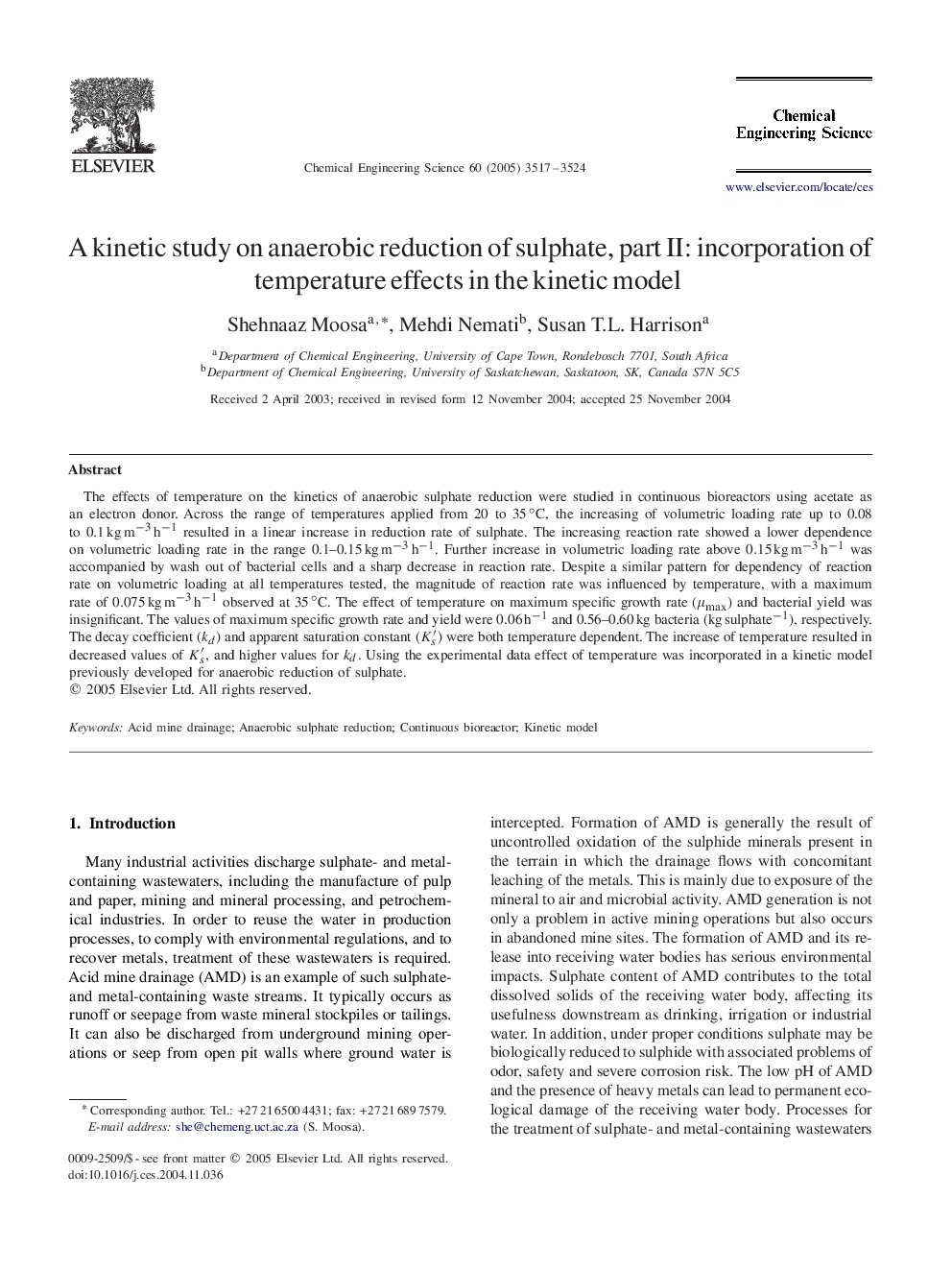| کد مقاله | کد نشریه | سال انتشار | مقاله انگلیسی | نسخه تمام متن |
|---|---|---|---|---|
| 159756 | 457046 | 2005 | 8 صفحه PDF | دانلود رایگان |

The effects of temperature on the kinetics of anaerobic sulphate reduction were studied in continuous bioreactors using acetate as an electron donor. Across the range of temperatures applied from 20 to 35∘C, the increasing of volumetric loading rate up to 0.08 to 0.1kgm-3h-1 resulted in a linear increase in reduction rate of sulphate. The increasing reaction rate showed a lower dependence on volumetric loading rate in the range 0.1–0.15kgm-3h-1. Further increase in volumetric loading rate above 0.15kgm-3h-1 was accompanied by wash out of bacterial cells and a sharp decrease in reaction rate. Despite a similar pattern for dependency of reaction rate on volumetric loading at all temperatures tested, the magnitude of reaction rate was influenced by temperature, with a maximum rate of 0.075kgm-3h-1 observed at 35∘C. The effect of temperature on maximum specific growth rate (μmaxμmax) and bacterial yield was insignificant. The values of maximum specific growth rate and yield were 0.06h-1 and 0.56–0.60 kg bacteria (kgsulphate-1), respectively. The decay coefficient (kdkd) and apparent saturation constant (Ks′) were both temperature dependent. The increase of temperature resulted in decreased values of Ks′, and higher values for kdkd. Using the experimental data effect of temperature was incorporated in a kinetic model previously developed for anaerobic reduction of sulphate.
Journal: Chemical Engineering Science - Volume 60, Issue 13, July 2005, Pages 3517–3524